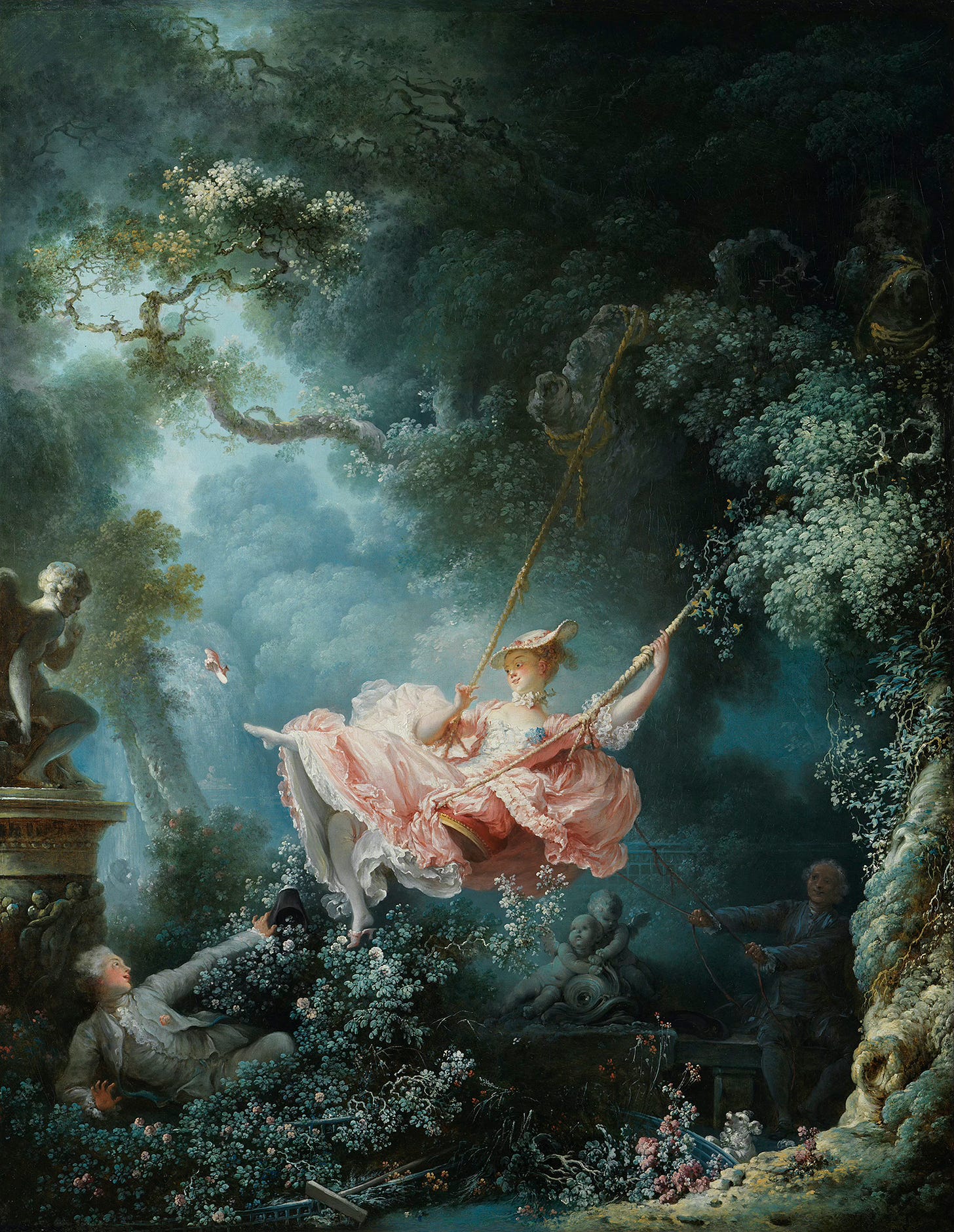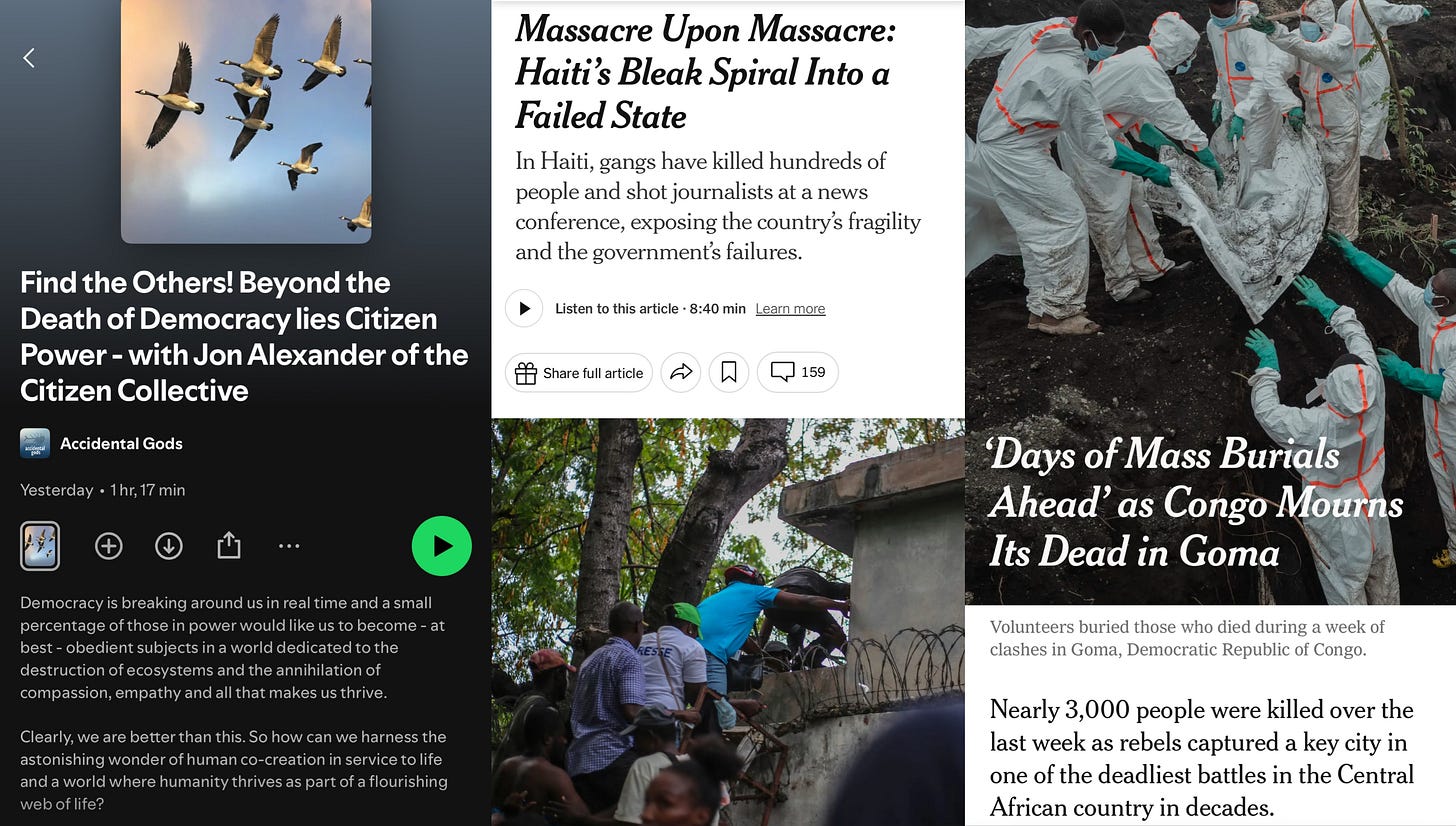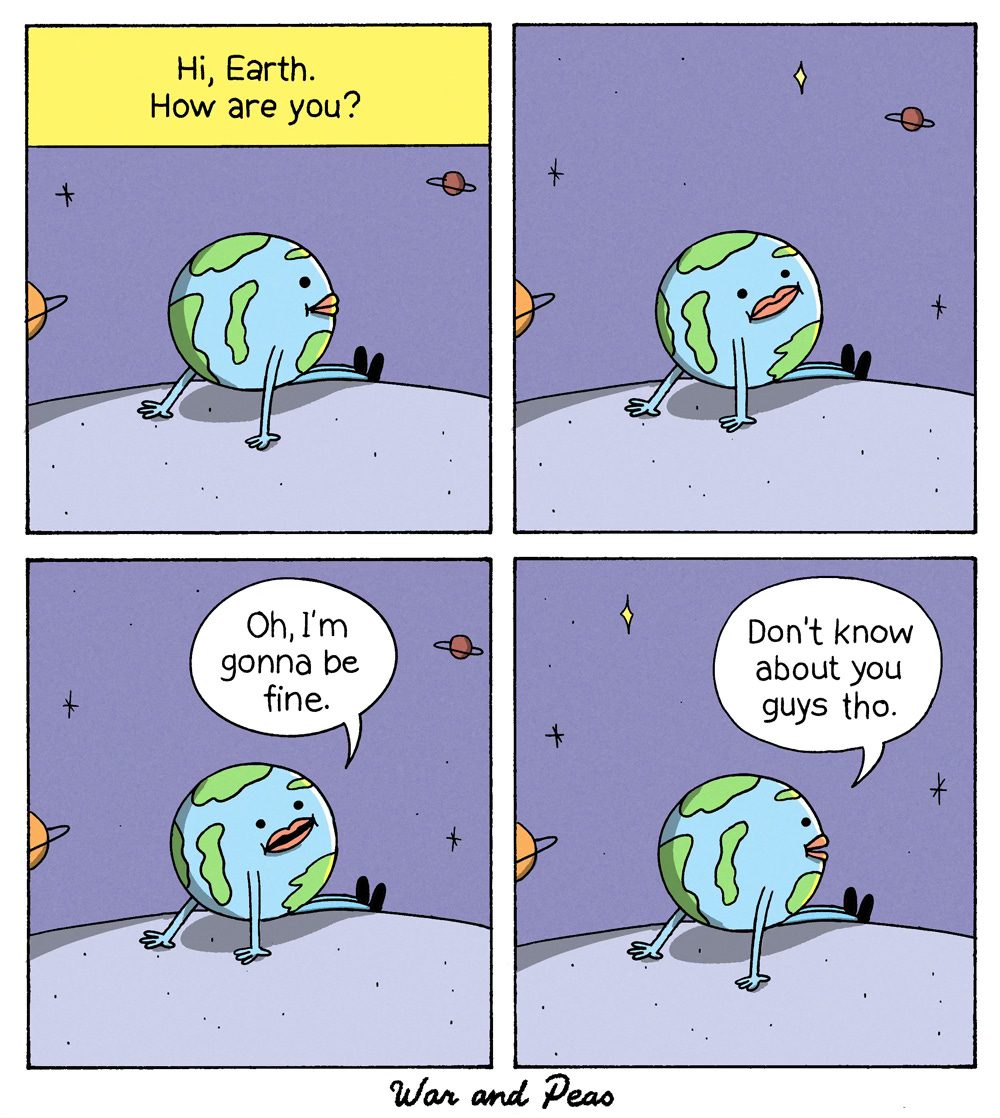
#1: Comparisons to “Previous Apocalypses”
It has become popular to point out that “humans have survived apocalypses before”. They are often referring to indigenous communities and implying that if we learn from their examples, we’ll be okay.
However, there are several differences between our current predicament and previous ends-of-worlds:
In the case of indigenous communities, the threat was coming from outside (with the exception of times when, for example, they drove megafauna to extinction). In our case, our own survival strategy (i.e. machines and mass-extraction of calories) is the problem.
It’s not exaggeration to say that today, the technosphere has become our life support. In previous instances, humans were more accustomed to relying directly on their environments, because our extremely advanced technosphere (which Andrew Nikiforuk describes here) didn’t even exist.
Compared to the past, there are fewer places that are hospitable to “unassisted” human life. Past ecological damage was regional. This time, we’ve decimated the entire planet. In the technosphere’s absence, modern humans will confront that extreme weather makes certain places deadly and that “development” has dramatically reduced locally accessible calories.
This is actually something that is similar between those past times and this one, but which we make invisible: Although some members of persecuted societies and collapsed civilizations survived, plenty of others perished. A focus on those who lived to tell the tale misses the other side of the story. Similarly, in this story, many (most?) individuals -possibly including you and me- will be the “dispensable extras in this movie.”
#2: Confusing various meanings of “the world”
Civili-zealots fail to understand the distinction between the technosphere and the planet, and therefore wrongly interpret my stance as a dismissal of everything’s prospects.
Whenever I’ve thought “we’re f&$#%d”, I’ve never meant that the planet and all lifeforms on it are doomed. In the year 2200, Earth will definitely still exist and I believe that living organisms will very likely still exist, too. The story of this planet will continue to play out until the Sun consumes it.
Nevertheless, certain phenomena on this planet do have very little time left until they expire. Our machinery and infrastructure started out as a fun perk for early civilizations. But now most humans have now become utterly dependent on them for survival. As those material systems run low on fuel and fall into disrepair, this (along with climate extremes and other ecological and social factors) will bring an end to our intangible systems and to the coordination-of-activities-according-to-the-civilization-framework. This will leave civilization-reliant humans quite f&$#%d.
The “world” that Hannah Ritchie defends in “Not the End of the World” isn’t the natural one; it’s the technosphere, which has consistently across civilizations served to suck up resources and lay waste to its surroundings. Hers isn’t true concern for nature, the environment, Earth, Life. It’s an insistence that the technosphere can somehow be compatible with a finite planet (It can’t.) yet Ritchie gets crowned eco-savior.
Our confusion of the technosphere (“the world”) with Earth (“the world”) is so profound that when you oppose industrialism run on “clean” energy, people assume that you are in favor industrialism run on fossil fuels. They cannot even imagine the possibility of NEITHER. We're terrified of climate change killing us but we're equally terrified of having to live like the animals that we are, which (as things currently stand) would be a death sentence for most of us.
#3: The Transcendental Twist
I strongly believe that there is inner work to be done as relates to collapse. It’s important to reflect on how we want to show up during these times and behave in ways that are consistent with our values, to acknowledge the positives that are still present and to express gratitude for how relatively good we still have it. (Simultaneously, it feels obligatory to acknowledge that much suffering and death has already occurred at the hands of civilization, and that this will worsen.)
However, some voices put a transcendental twist on the collapse concept. In my opinion, this downplays all of the endings and suffering that are on the horizon. It’s for this reason that I’m suspicious of New-Age-sounding messages that present this moment purely as an opportunity for reinvention. If folks are concerned about what lies ahead (and I think they are), it’s misleading to refer to it merely a spiritual transformation.
“Climate change is the gym in which we as human beings are strengthening our muscle to be able to evolve to a much higher sense of awareness than before … measured in the way that we understand our relationship with nature”
-Christiana Figueres, “clean” energy advocate, on an episode of On Being
This language can imply that the suppression of “primitive” existence was merely unethical; that “civilized” existence has merely reduced the spiritual richness of our lives; that inner work (and adoption of “clean” technology) will secure our wellbeing for the years ahead… but that there’s nothing particularly damning about reliance on machines and imperial trade networks. This can lead listeners to believe that an “Ecological Civilization” could eventually emerge - whereas there is no such thing.
I suspect that most of these folks who expect a *cultural transformation* haven’t given much thought to the idea that, in the coming decades, human deaths will so exceed births that the population will drop by billions. I doubt that they’ve sat with the thoughts of facing a gruesomer death than many of us in the Global North expected. I don’t think they’ve reflected much on how traumatic it will be to witness others suffer.
Maybe it was the imperative to acknowledge that things are bad, without the awareness that certain crucial things are also bound to end, that inspired this framing. It feels like a way to bypass the step of recognizing that we are still very much engaged in a settler culture and that, in our state of domestication, we are terribly maladapted for the conditions that are coming our way.
One might suggest that I’m being too tough on people, that this is all very scary to grapple with. But I’m leaning toward the verdict that we members of “civilized” society need to grow up and face reality, after all the brutality that our culture inflicts and all of the hardship that is coming out way.

#4: Having It Our Way
Alternatively, folks are willing to use the term “collapse” but insist on dictating the exact terms and conditions of the apocalypse.
Sometimes, they eagerly embrace the idea of its imminence. They might wish to declare a premature victory, skipping ahead to the light at the end of the tunnel. Unfortunately, the collapse of our technosphere and of civilization-type behavior will stretch out over this century. James Howard Kunstler aptly titled his book about collapse “The Long Emergency”.
Just as often, folks fall into the trap of thinking of collapse as a convenient cleansing, like a Biblical flood. And of course there’s a spot for them on Noah’s Ark. Folks want to be rid of fossil fuels, of capitalism, of consumerism, of Republicanism, of excessive meat consumption, of cars and planes (but not trains and buses), of brain-rotting screens, of crowds.
We’re at a strange moment when people are admitting that "it's impossible for us to keep doing what we've been doing", yet they still don’t understand what that means. “Third World Problems” are still seen as forms of adversity that affect other people in other places. When proponents of a supposedly-different existence (e.g. certain degrowth advocates) imagine how anyone who survives into future decades might nourish, teach and heal each other, they often imagine these occurring within the settings of restaurants, hospitals and classrooms, and with the supplies that imperialism’s extensive supply chains afford us.

What we’re ultimately headed toward is the absence of any industrialism, economy and government. What we experience along the way from civilization’s current state to its obsolescence, is unlikely to be a socialist, progressive, plant-based utopia powered by “clean” energy where women’s empowerment has lowered the birth rate.




You always make me want to add loads of comments, inspiring thoughts I guess, which is proof of a good writer :). But I want to ask first Andrea, have you read Braiding Sweetgrass by Robin Wall Kimmerer?
Temporary. - like, how temporary? There’s some mighty inertia built up in this errant supersystem, entropy and all, so it might be longer than an older folk’s lifetime, might not, let’s ask all the Nostradamuses…
Tough topic, but your writings are so much more grounded than Ms. Donald efforts, though she puts on quite a show. She should have you on - Eliot Jacobson fumbled his CNN International chance to do a Newsroom-style truth bomb for all us doomer bastards, but you wouldn’t let us down.